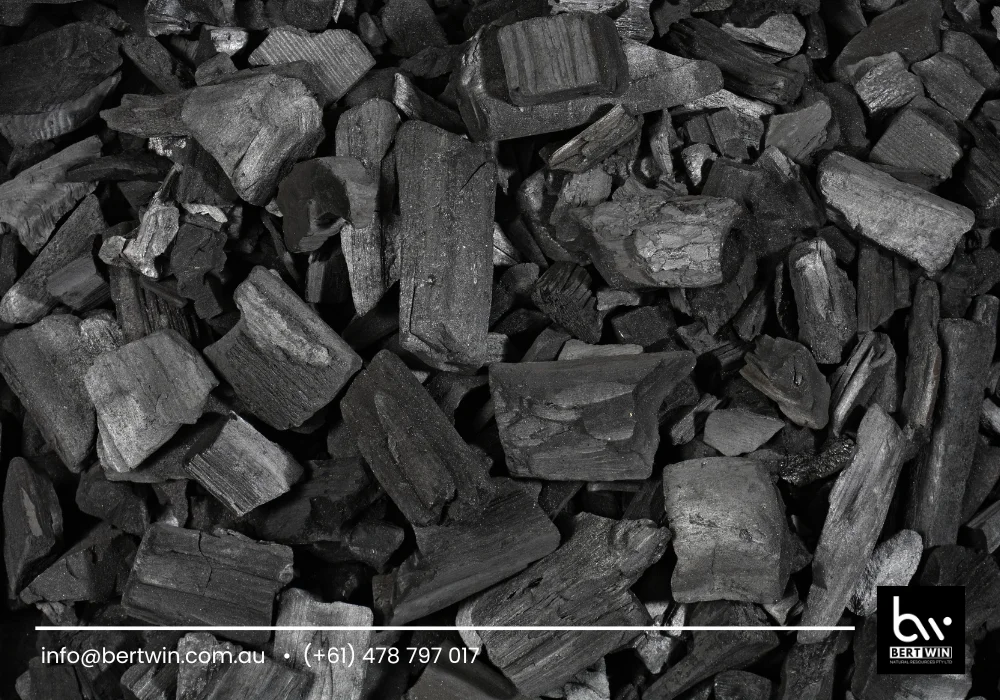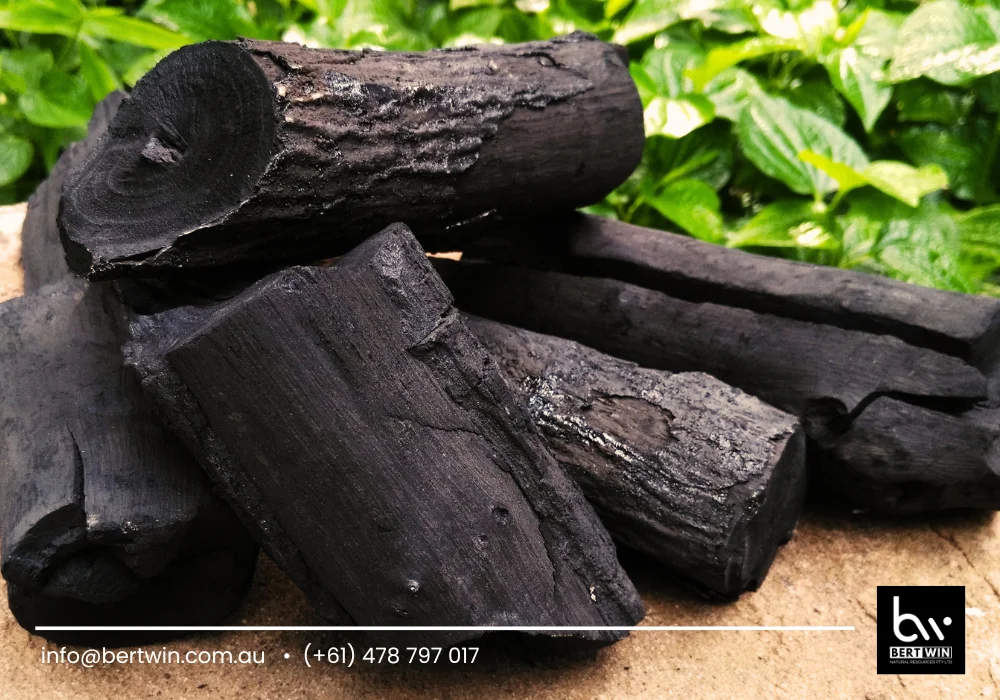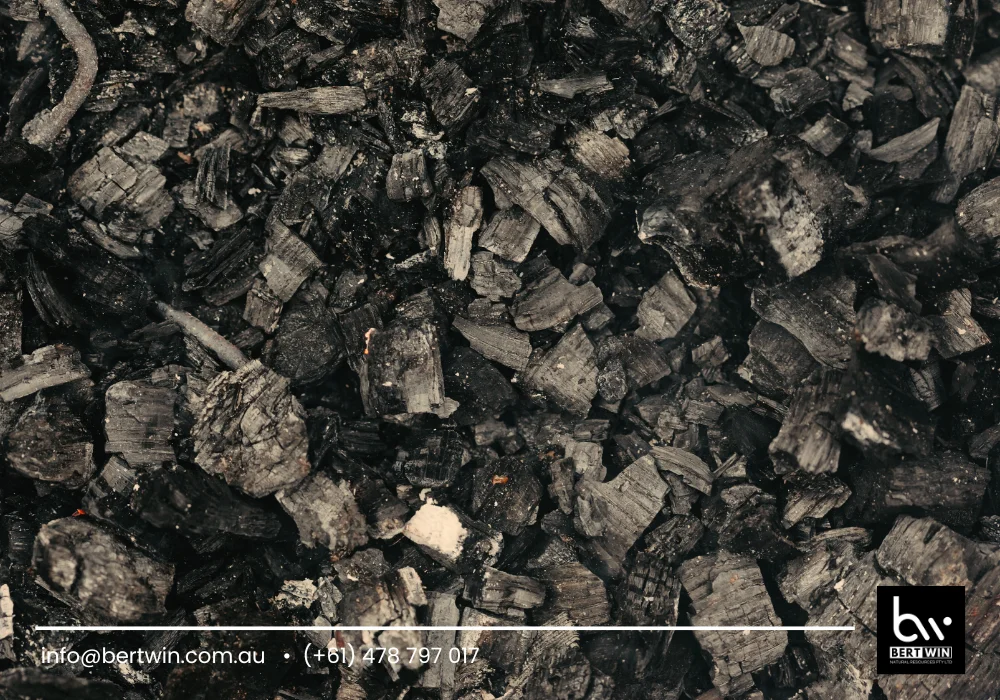Coconut charcoal for water filtration is gaining significant attention as an effective and eco-friendly solution for purifying water. With growing concerns about water quality and environmental impact, many industries and households are turning to coconut charcoal as a natural filtration medium. This article will explore how coconut charcoal for water filtration works, its benefits, and why it’s becoming a preferred choice for sustainable water purification in Australia.

What Is Coconut Charcoal and How Does It Work in Water Filtration?
- Coconut charcoal is produced by heating coconut shells at high temperatures in a low-oxygen environment, a process known as carbonization. This produces a highly porous material that has a large surface area.
- Coconut charcoal for water filtration works by using its porous structure to trap contaminants, chemicals, and impurities from water. The surface area of coconut charcoal allows it to adsorb harmful substances, making it an ideal material for purifying water.
- Activated coconut charcoal, in particular, is treated to enhance its adsorptive properties, making it more effective at removing pollutants from water compared to non-activated forms.
Benefits of Coconut Charcoal for Water Filtration
- Effective Removal of Impurities
- Coconut charcoal for water filtration is known for its ability to remove a wide range of impurities from water. It effectively adsorbs chlorine, volatile organic compounds (VOCs), pesticides, and heavy metals.
- It is also effective at removing odors and bad tastes, providing cleaner, better-tasting water for both drinking and industrial applications.
- The charcoal works by trapping particles and contaminants in its porous surface, preventing them from passing through the water filtration system.
- Eco-Friendly and Sustainable
- One of the primary reasons coconut charcoal for water filtration is becoming popular in Australia is its eco-friendly nature. Coconut shells, which are typically discarded as waste, are repurposed to create charcoal, making it a sustainable alternative to traditional filtration media.
- Unlike other filtration materials that may require mining or chemical processing, coconut charcoal is derived from renewable resources and has minimal environmental impact.
- Additionally, coconut charcoal is biodegradable, which means it won’t contribute to long-term environmental waste when it is disposed of after use.
- Health Benefits
- Using coconut charcoal for water filtration offers health benefits by removing harmful chemicals, bacteria, and viruses that could otherwise cause health issues.
- By filtering out chlorine, which is commonly used in municipal water systems, it can prevent the negative effects of chlorine on the skin, hair, and overall health.
- It also helps in reducing the presence of heavy metals like lead and mercury, which can accumulate in drinking water and pose long-term health risks.
- Improved Water Quality
- When used in home water filtration systems, coconut charcoal for water filtration provides cleaner water by improving its taste and clarity.
- The adsorption properties of coconut charcoal can remove sediments, making the water appear clearer and more appealing.
- The filtration process can also soften hard water, reducing mineral buildup in appliances and plumbing systems.
Applications of Coconut Charcoal in Water Filtration

- Household Water Filtration Systems
- Many Australian households use coconut charcoal for water filtration in their water filter systems. Charcoal filters are commonly found in pitchers, faucet-mounted filters, and under-sink filtration units.
- These filters can provide clean, great-tasting water by removing chlorine, bacteria, and other contaminants commonly found in tap water.
- Coconut charcoal is an ideal choice for these systems due to its effectiveness, low cost, and eco-friendly properties.
- Industrial Water Treatment
- Coconut charcoal for water filtration is also used in larger-scale industrial applications, such as water treatment plants, wastewater management, and the food and beverage industry.
- In these settings, coconut charcoal is used to remove contaminants from water before it is discharged or used in the production process.
- The charcoal’s ability to adsorb pollutants and chemicals makes it a reliable material for improving the quality of water in various industrial operations.
- Aquarium Filtration
- Coconut charcoal for water filtration is commonly used in aquariums to maintain clean and healthy water for fish and other aquatic life.
- It helps remove impurities, excess nutrients, and toxins that could harm aquatic animals, keeping the water clear and safe for the environment.
- Using coconut charcoal in aquariums is also beneficial because it maintains a balanced ecosystem and reduces the need for frequent water changes.
- Emergency Water Purification
- In emergency situations or off-grid living, coconut charcoal for water filtration can be used as a simple and cost-effective method for purifying water.
- It can be used in DIY filtration systems or in combination with other natural materials to create portable water filters for hiking, camping, or disaster preparedness.
How to Use Coconut Charcoal for Water Filtration
- Activated Carbon Filters
- Activated carbon filters that contain coconut charcoal for water filtration are widely available for home use. These filters can be easily installed in pitchers, water dispensers, or faucet attachments.
- To maintain their effectiveness, charcoal filters should be replaced regularly, depending on the volume of water filtered and the level of contamination.
- Bulk Charcoal for Larger Systems
- For industrial or larger-scale filtration systems, coconut charcoal for water filtration can be purchased in bulk and placed in filtration units that handle large volumes of water.
- These systems can be designed to remove specific contaminants based on the needs of the facility, such as agricultural runoff or chemical pollutants.
- DIY Water Filters
- For those looking for a DIY solution, coconut charcoal for water filtration can be used to create simple filtration systems. By layering charcoal along with other natural materials like sand and gravel, you can create an effective water filter for emergency situations or for outdoor activities.

Conclusion
Coconut charcoal for water filtration is an innovative and sustainable solution for improving water quality. Its natural ability to adsorb impurities, chemicals, and pollutants makes it an ideal choice for household, industrial, and emergency water filtration systems. With its eco-friendly nature, health benefits, and versatility, coconut charcoal is rapidly becoming a go-to material for water purification in Australia and beyond.
For further information, you may contact WhatsApp at (+61) 478797017 or via email at info@bertwin.com.au.
